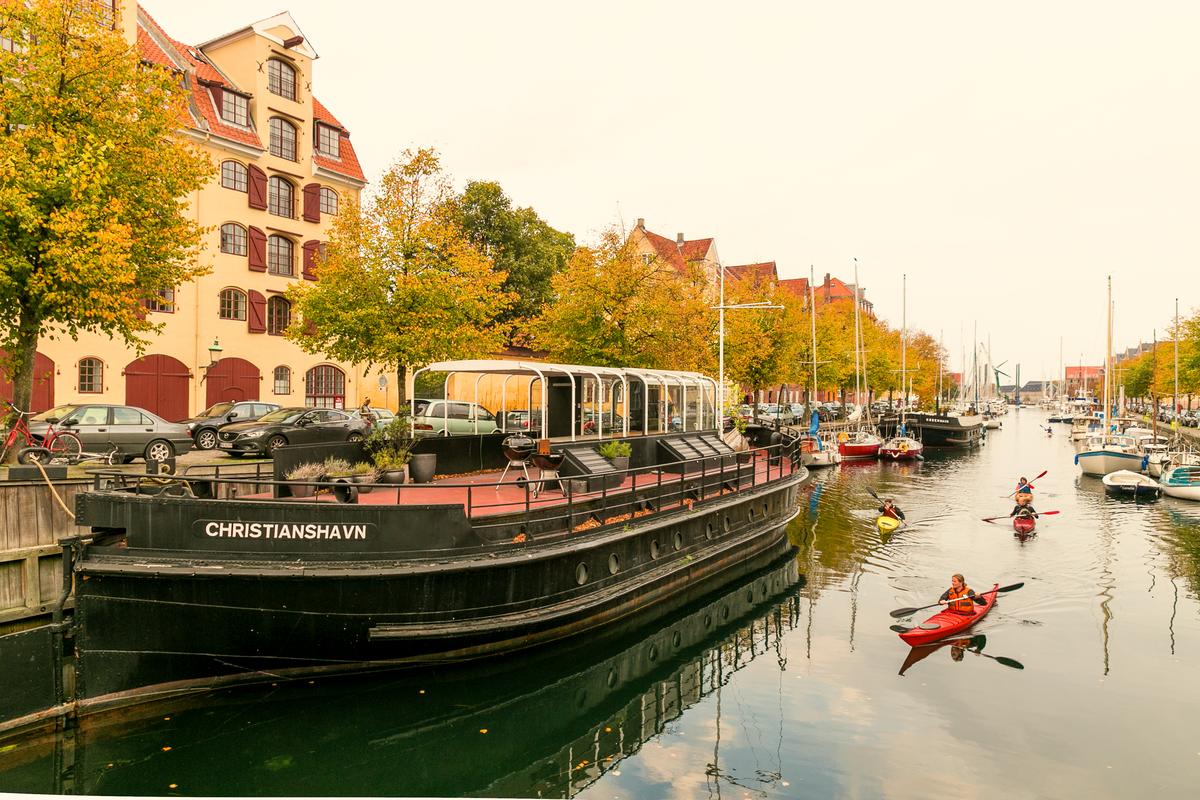New 2018 Data: Airbnb boosted the food sector with DKK 1.3 billion last year in Denmark

Airbnb is today releasing new data showcasing how guests on Airbnb to Denmark last year spent over DKK 1.3 billion on food and groceries in Denmark. The data shows that the more than 1 million guests who visited Denmark through Airbnb in 2018 spent close to half of their expenditure on food. This is good news for the food sector as a whole, but especially for those local food businesses outside of the traditional hotspots as Airbnb guests typically want to live like locals.
Data from Airbnb’s yearly survey – taken by over 3,000 hosts and guests on Airbnb in Denmark in 2018 – shows that guests spend on average DKK 891 per day (excluding the accommodation costs) when traveling on Airbnb to Denmark. From that daily expenditure, guests spend 42 percent on local dining and groceries, equalling an economic benefit of DKK 1.344 billion for the Danish food industry. Compared to other expenses like shopping, transportation and leisure, Airbnb guests spend the greatest portion of their money on local restaurants and groceries.
Here is why guests on Airbnb tend to spend more money on food and groceries compared to traditional tourists:
The have more budget left for food – Over 9 in 10 guests indicate that saving money is one of the reasons why they choose Airbnb. Consequently, almost half of the guests who indicated they saved money by staying on Airbnb, said they spent more money on food and shopping.
They receive more local recommendations – Almost 8 in 10 hosts on Airbnb in Denmark recommend cafes and restaurants to their guests. As such, hosts on Airbnb are helping guests to find the restaurants and cafes that make Denmark unique. Airbnb is also accelerating that trend by creating better relationships between hosts and local businesses through the organisation of regular merchant walks.
They look for more authenticity – Over half of the guests on Airbnb indicate exploring the culture and sightseeing as the main reasons for their trip; and what better way to get to know a country’s culture then by tasting its cuisine.
The data also shows how Airbnb can really help those local food businesses outside of the traditional hotspots – as many guests on Airbnb stay outside of tourist districts and 40 percent of their spend takes place in the neighbourhood where they are staying.
Torben Hoffmann Rosenstock, CEO Danmarks Restauranter & Cafeer, said:
“We’re impressed by the extent of business originating from Airbnb guests contributing to the financial health of the Danish restaurant industry, according to this data. The restaurant market has been growing steadily for many years, and so has the competition. Consequently, many restaurateurs are working very hard to maintain their revenue or, if possible, meet the expected growth in revenue targets. I assume that a wide range of quality restaurants is one amongst many reasons why tourists choose to visit Denmark. Tourism is dependent on a financially healthy restaurant industry, just like the restaurant industry depends on tourism.”
Pieter Guldemond, Public Policy Manager Nordics at Airbnb, said:
“Airbnb brings in new types of travelers who love to try local food and visit areas outside of tourist hotspots. The amount spent by guests who travel with Airbnb to Denmark has a significant economic impact on the food sector in particular. We look forward to continue working together with cities and regions across Denmark to ensure the local economy as well as the citizens can continue to benefit from the added value of tourism.”